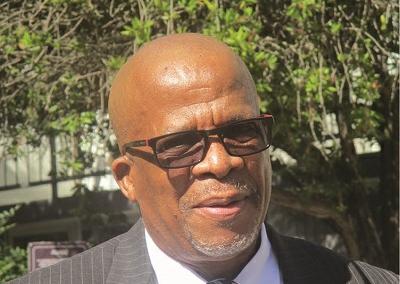Africa-Press – Lesotho. Ministry of Tourism, Environment and Culture (MTEC) has established the regional project on Developing a Regional Strategy towards the environmentally sound Management and controlled Trans Boundary Movement (TBM) of plastic waste in the Southern African Development Community (SADC).
MTEC Director of Environment Stanley Damane said the need for proper management of the waste with a view to increase both environmental and economic benefits,
along with improved quality of life has been realized for over a decade and several initiatives were embarked on. He said these include the establishment of the Committee on Waste (COWMAN) which advises on all waste management issues, assessment of waste types and quantities of domestic waste, assessment of required infrastructure for waste management, assessment of required human capacity for proper waste management in Maseru city, piloting of the Integrated Solid Waste Management Program in Maseru city in collaboration with United Nations Environment Program (UNEP). “The occasion today add to the good initiative we aspire to undertake although a lot of work in proper management of waste through all its streams still has to be done,” he said. Damane further acknowledged the initiatives taken by the
National University of Lesotho (NUL) through its Innovation Hub in finding some recycling solutions. He said there is clearly a need to consider public-private
partnership approach in their endeavors to better manage waste in Lesotho that is driven at community level and using low energy or low technology resources in the process promoting applications of 7Rs being Reduce, Reuse, Recycle, Rethink, Research, Refuse and Recover. He said this will lead to sustainable patterns of consumption and production of plastic products. Damane emphasized that they therefore hope to get the ongoing initiatives on waste
management and potential partnerships, policy and institutional frameworks that may enable successful implementation of initiatives for waste management.
“Collective understanding of the challenges of plastic waste and design solutions will assist in the attainment of the desired results for environmental sustainability,” he insisted. MTEC Senior Environment Officer Thabo Tšasanyane said plastic has an impact on human health and environment because it causes pollution to the land, pollutes water and damages infrastructure. He said plastic makes the environment dirty and tourism is one of the key sectors that countries rely on in terms of economy boosting. “So no one would like to visit untidy country,” he said. Tšasanyane
further said the reason for establishing this project is that they need to fulfil their national, regional and international obligations. He further said at the national level, they are obliged to fulfill National Strategic Development Plan (NSDP) II on the sector that talks about water and sanitation and this is where plastic will also be contributing in terms of lowering their sanitation or hygiene standards. Africa Institute Representative Thandeka Mbatha explained that the SADC region has not undertaken significant coordinated action in addressing plastic waste.
She added that. it does not have harmonized data sets or a regional strategy for the environmentally sound management (ESM) and control of TBM of plastic waste to serve as a basis for
priority setting, policy and regulation development and implementation. She said this is a regional project to be implemented in five countries being Lesotho, Namibia, Malawi, Tanzania and Zambia and will take 12 months.
“As a result, some countries have adopted approaches for a total ban on certain plastic use and
consumption, some have taken a more cautious approach of encouraging the development of robust plastic waste management systems that promote collection,
sorting, and recycling activities while others have taken a more piecemeal approach,” she said. She said this project will lay a strong foundation for an
effective, coordinated, and well-planned approach to ESM and control of TBM of plastic waste that involves all key stakeholders and is based on concrete data,
unique and common characteristics of the participating countries and provisions, guidelines, and guidance of the Basel Convention, in particular the Plastic Waste Amendment. Mbatha explained that the objectives of the project is to strengthen the ESM and control TBM of plastic waste through the implementation of the Basel Convention in the SADC region, facilitated by improved national and regional-level information and data, comprehensive and coordinated communication and planning and targeted training, capacity building and awareness raising.
For More News And Analysis About Lesotho Follow Africa-Press






